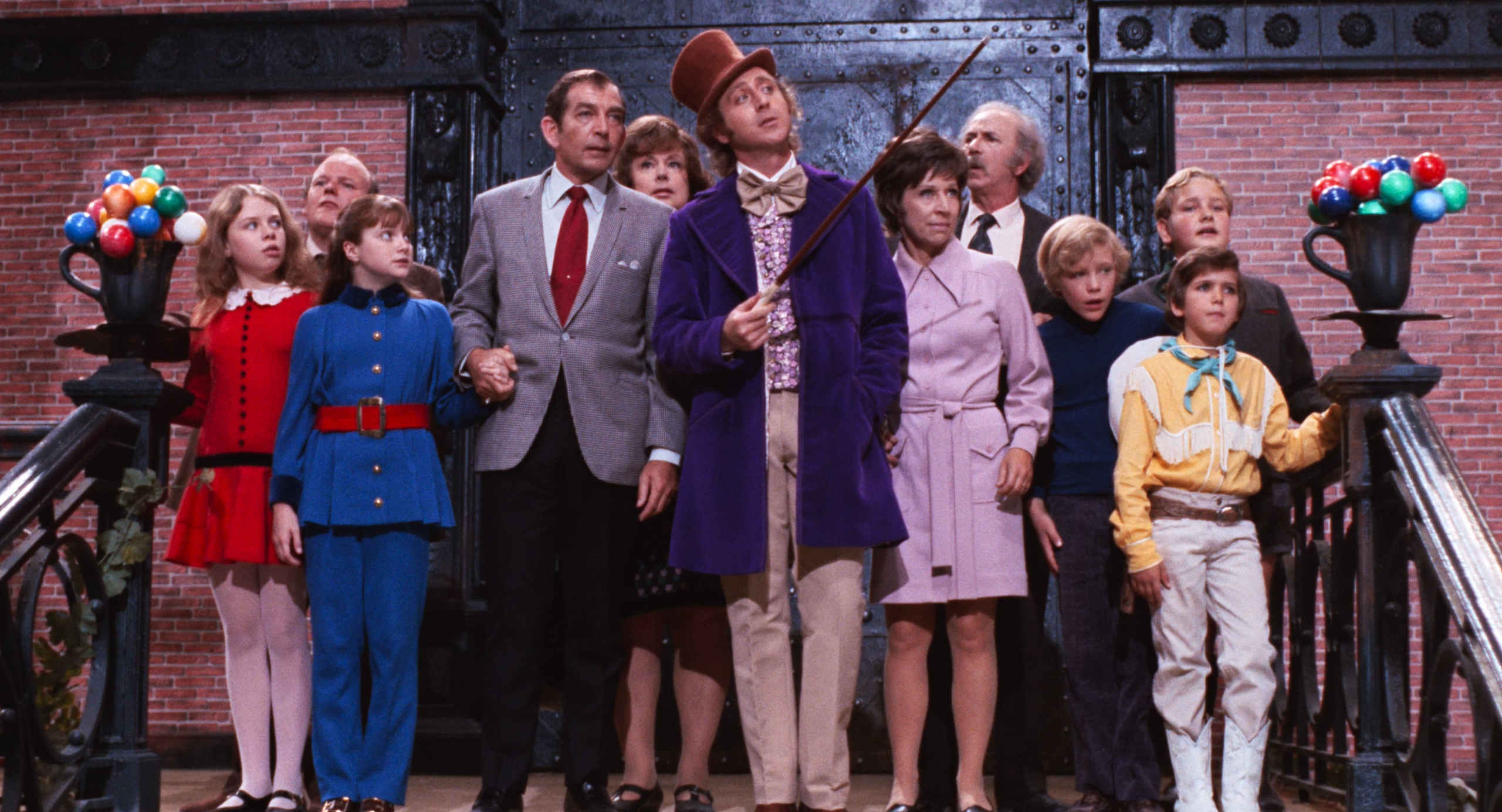Willy Wonka & the Chocolate Factory – Film Review
Published November 29, 2023

Directed by Mel Stuart and based on Roald Dahl‘s beloved novel “Charlie and the Chocolate Factory,” Willy Wonka & the Chocolate Factory is a cinematic delight that has captivated audiences for generations since its release in 1971. This whimsical tale takes viewers on a vibrant and fantastical journey through a chocolate factory while delivering poignant messages about greed, humility, and the power of imagination.
Set in a quaint town, the story revolves around a poor but kind-hearted boy named Charlie Bucket, portrayed endearingly by Peter Ostrum. Charlie’s life takes an unexpected turn when the enigmatic candy maker, Willy Wonka, played masterfully by Gene Wilder, announces a contest offering five golden tickets hidden in his chocolate bars. The winners will embark on a once-in-a-lifetime tour of his mysterious and magical chocolate factory.
The film’s opening sequences establish the charming yet gloomy atmosphere of Charlie’s world, beautifully contrasting with the vivid and eccentric allure of the chocolate factory. The cinematography artfully captures the stark contrast between the mundane reality of Charlie’s impoverished life and the vibrant, colorful wonderland that is Wonka’s factory.
Gene Wilder’s portrayal of Willy Wonka remains iconic, blending a perfect mix of eccentricity, whimsy, and a hint of enigmatic darkness. Wilder’s performance is the heart of the film, balancing childlike wonder with an underlying sense of mystery that keeps viewers entranced throughout the story. His famous entrance, hobbling with a cane before executing a surprising somersault, perfectly encapsulates Wonka’s unpredictable nature.
The casting of the child actors is commendable, each bringing a unique personality to the story. From the gluttonous Augustus Gloop to the spoiled Veruca Salt, and the TV-obsessed Mike Teavee, each character represents a different flaw or vice, making the moral lessons more pronounced. The charming innocence and wide-eyed wonderment of Charlie Bucket stand out amidst these diverse personalities, anchoring the film’s message of virtue and humility.
The factory itself is a visual feast for the eyes, brimming with elaborate sets, whimsical designs, and inventive confections. The iconic scenes, such as the chocolate river, lickable wallpaper, and the fizzy lifting drinks room, showcase the boundless creativity of the filmmakers and Roald Dahl’s imagination. The musical numbers, including the catchy “Pure Imagination,” add an extra layer of enchantment to the film, heightening the sense of wonder and magic within the factory’s walls.
However, beneath the film’s vibrant surface lies a deeper commentary on human nature. Through each child’s downfall due to their flaws, the story subtly critiques societal issues such as greed, selfishness, and indulgence. The moral lessons conveyed through the characters’ misadventures serve as cautionary tales, reminding both children and adults alike about the consequences of excessive desires and lack of humility.
One of the film’s strengths lies in its ability to resonate with audiences of all ages. While younger viewers revel in the fantastical elements and the joyous spectacle of the chocolate factory, older audiences appreciate the film’s deeper themes and moral undertones. The timeless nature of these messages ensures the film’s enduring appeal across generations.
Nevertheless, some aspects of the film may feel dated to contemporary audiences. The pacing, though deliberate, might appear slow by today’s standards. Additionally, certain special effects may lack the sophistication expected in modern cinema. However, these minor drawbacks do not detract significantly from the film’s overall charm and enduring legacy.
Willy Wonka & the Chocolate Factory remains a classic cinematic masterpiece that continues to enchant audiences decades after its release. Mel Stuart’s direction, coupled with Gene Wilder’s captivating performance as Willy Wonka, creates a magical and thought-provoking experience. The film’s blend of whimsy, moral lessons, and imaginative storytelling cements its status as a timeless classic—a journey into a world where dreams and chocolate collide in delightful harmony.
